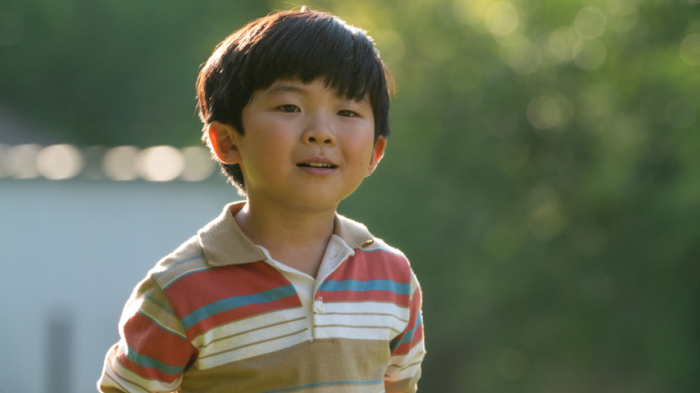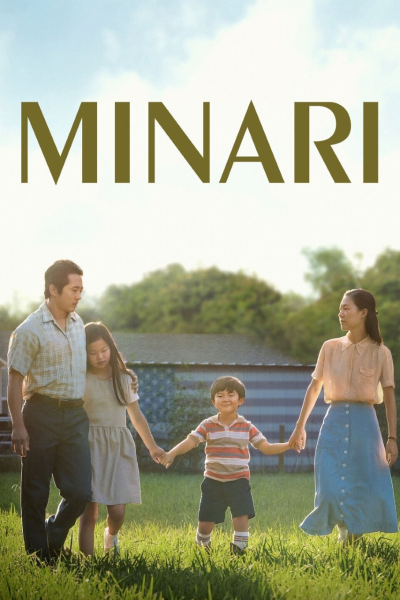'Minari' director Lee Isaac Chung says Pentecostal man in film showed his family how to love

Lee Isaac Chung, the writer and director behind the Golden Globe Award-winning film “Minari,” says the Christian character in the film was a real person and significant figure in his life who taught his family what it means to love others.
“Minari” is based on Chung’s own childhood in the 1980s as his South Korean family pursued the American dream in rural Arkansas.
Chung said the film is derived from his life and was written from a “list of memories.”
“What you see happening in the plot of the film, a lot of that draws from things that have happened in my life,” he told The Christian Post. “What you see in the home, a lot of little details, that comes from real life.”
The film stars Steven Yeun, Yeri Han, Alan Kim, Noel Kate Cho, Yuh-Jung Youn, and Will Patton.

“‘Minari’ follows a Korean-American family that moves to an Arkansas farm in search of their own American dream. The family's home, however, is completely transformed with the arrival of their sly, foul-mouthed, but incredibly loving grandmother.
Amid the instability and challenges of this new life in the rugged Ozarks, ‘Minari’ shows the undeniable resilience of family and what really makes a home,” the synopsis reads.
As seen in the film, Chung said he really has an older sister, a grandmother who came and watched them as their parents worked in chicken hatcheries, and they had a farm. However, he adds that a lot of other things “were changed for the sake of letting the story work together.”
The authenticity of the family dynamic in the film is what resonates most with audiences, Chung said.
"I just wanted to present a portrait of a family in which everybody feels very real and very human,” he explained. “I wanted this story to not just present this family as a bunch of saints where nothing they do is bad. They're torn with their own struggles, and they have fights, and they're on the brink of collapsing many times.
"Ultimately, they're trying to find a way to stay together, and they have a deep love for each other underneath all that. That was really a goal with this, to try to show human beings and hope that people would connect to that.”
Along their journey, the family meets a white radical Christian man who commits to helping the family on their farm and prays for them. Although the film is not based on this narrative in particular, Chung says that the character, who is based on a real person, had a lasting impact on his family’s life.
“He's based on someone from my real life. He was a Pentecostal man who worked on our farm. The sense I got with him, you see it in Scripture, it's the foolish who shamed the wise many times; I kind of felt that way with him,” Chung told CP in an interview (watch below).
"He was a fool for Christ and he taught us a lot about what it means to love somebody,” he added. “There are people in the town that would make fun of him, to be honest. But yet, he became our friend, and he was the first guest we had in our house and he really welcomed us into that community.
"I always felt like, there's something in that that speaks to the Christian faith, the sort of connection that we're supposed to be making with people on the margins, and really welcoming in strangers and all these different elements of the faith that I respond to,” he said.
"I wanted to show him in this way, this counterintuitive way. Because also, we see so many images of white Christians in the south, and they're treated with a lot of caricatures,” he continued. “So I thought, it's interesting if we can have this character in the film who feels like that at the beginning, but then you really realize that he's a fully fleshed out more complex human being than we were immediately expecting.”
When talking about the movie's overarching theme, the filmmaker, who went on to attend Yale University, says he's grateful for how much his family sacrificed to make a way for him and his sister.
"It's not lost on me that I've definitely benefited a lot in this country. My parents, they grew up in a time when there was war in Korea. And my grandmother, her husband, my grandfather, was a soldier and he died in the war," he said. "A lot of people in that generation, they didn't go to schools. My grandmother couldn't read; she didn't finish beyond elementary school."
Chung added: "For them to come over to the U.S. and have me and my sister, and for us to be in this position now where I'm doing press, it's really remarkable. For me, the people who made that possible are always the people who are behind the scenes and oftentimes very invisible. Like my grandmother, no one knew about her because she didn't really speak English. She was just at home watching us and making sure that we're staying alive. My parents were kind of buried away in a factory working.”
It's really the work of “people sacrificing for each other” that makes all people who we are, he added.
“That's the secret story to this country; it's that sense of sacrifice. It's not just Asian immigrants or immigrants in general. This is a story of everybody,” he declared.
“The pandemic, we're seeing so many people stepping up now. And it doesn't matter what race or what background they are, there are people who are keeping us alive right now. We just got to thank them and honor them. That, to me, is the American dream.”
Chung also praised people such as Jeremy Lin who are raising awareness about racism and discrimination against Asian Americans. The number of violent attacks against Asians has spiked amid the coronavirus pandemic.
“I'm glad to hear the way Jeremy Lin has spoken out on this. It has been disheartening to hear about the recent rise of hate crimes against the Asian American community,” Chung told CP.
“I hope that anyone facing or experiencing discrimination will, first of all, take to heart that this is not their fault, and they are not alone in this. Secondly, I hope they find ways to plug into communities to help prevent negative feelings of discrimination from festering. I think the vast majority of us in this country hunger for more unity and hospitality, and we all share and shoulder the burden of hard work to build that,” he encouraged.
Speaking about "Minari," Chung said he wants his semi-autobiographical film to impact people in whichever way they need.
"I try not to be someone who's preaching a message with my films or anything like that. I just want it to be open, and I think this family is being open to everybody and showing the little ticks and quirks about their own lives. If it speaks into people's lives in a positive way, I'd be very happy for that,” he added.
Visit the “Minari” website for more information.




























